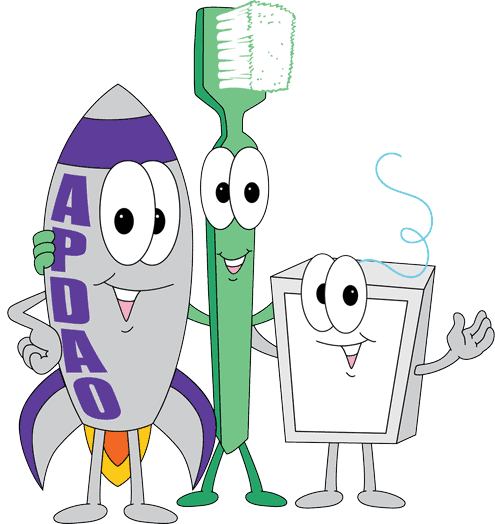Retainer instructions
- Wear your retainers full time, until the doctor instructs otherwise.
- Take your retainers out when eating and always put retainers in their case! (Most appliances are lost in school lunch rooms or restaurants.)
- Clean retainers thoroughly once a day with a wet toothbrush (no toothpaste which scratches). Use warm but not hot water. Brushing retainers removes the plaque, and eliminates odors.
- When retainers are not in your mouth they should ALWAYS be in a retainer case. Pets love to chew on them! (they want a beautiful smile, too!)
- Initially, you may find it difficult to speak. Practice speaking, reading, or singing out loud to get used to them faster.
- Retainers are breakable, so treat them with care. If retainers are lost or broken call us immediately.
- If you have any questions or concerns about your retainers, or your retainers need adjusting, call us. Do not try to adjust them yourself.
- Always bring your retainers to your appointments.
- Retainer replacement is expensive; with proper care they will last for years!
- Remove retainers when swimming.
- Keep retainers away from hot water, hot car dashboards, pockets, the washing machine, and napkins.
Emergency Care
True orthodontic emergencies are very rare, but when they do occur we are available to you. As a general rule, you should call the office when you experience severe pain or when you have a painful appliance problem that you can’t take care of yourself. We’ll be able to schedule an appointment to resolve the problem.
You might be surprised to learn that you may be able to temporarily solve many problems yourself until you schedule an appointment with our office. When working with your appliances, you need to know the names of the parts of your appliances so you are able to identify what part is broken or out of place. After alleviating your discomfort, it is very important that you still call our office as soon as possible to schedule a time to repair the problem. Allowing your appliance to remain damaged for an extended period of time may result in disruptions in your treatment plan.
General Soreness
When pressure is applied to your teeth, it’s normal to feel some tenderness for a few days. The intensity and duration will vary by patient and can be treated with acetaminophen (i.e. tylenol), naproxen (i.e. Aleve) or naproxen (i.e. Advil). Rinsing your mouth with a warm saltwater mouthwash might also help. Dissolve one teaspoonful of salt in eight ounces of warm water, and rinse your mouth vigorously. Placing Orabase on the affected area may help; this can be found in a pharmacy. If the tenderness is severe, take aspirin or whatever you normally take for headache or similar pain.
The lips, cheeks and tongue may also become irritated for one to two weeks as they toughen and become accustomed to the surface of the braces. You can apply wax to the braces to lessen this irritation. Check our video section and we’ll show you how!
Headgear
Sometimes headgear discomfort is caused by not wearing the headgear as instructed by your orthodontist. Please refer to the instructions provided by your orthodontist. If the facebow is bent, please call our office for assistance. Surprisingly, the headgear may hurt less as it’s worn more, so be sure you’re getting in the prescribed hours.
Loose Appliance
If your bracket or band is still attached to the wire, you should leave it in place and put wax on it. If your appliance is poking you, place wax on the offending part of your appliance. (Check out our videos to see how easy it is to apply) then call us to determine the next step.
Bracket (aka brace) is knocked off
Brackets can be knocked off by hard, crunchy or sticky food or if the mouth is struck at play. (Another reason we encourage all athletes wear a protective mouth guard!) If the wire falls off entirely, wrap the bracket with a tissue and call us to determine the next course of action.
Loose Wire
When teeth begin to move, the once tight wire can shift and begin to poke the back of the cheek. Apply wax to receive irritation and call us if the pain persists. If the wire has popped off the bracket, using tweezers, try to put your wire back into place. If this doesn’t help, as a last resort use small fingernail clippers to clip the wire behind the last tooth to which it is securely fastened. If your discomfort continues, give us a call and we’ll decide on our next plan.
Poking Wire
Using a pencil eraser, push the poking wire down or place wax on it to alleviate the discomfort.


